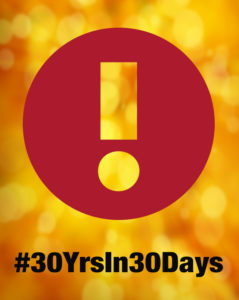Seeing Is Not Always Believing
Dec 18, 2018 | Posted by etc

Seeing is not always believing? You are probably thinking, “That is a weird thing for a graphic designer to say!” Yet, every person reading this post has had the experience of opening a beautifully wrapped package, only to be disappointed with what was inside. Looks can be deceiving.
How is your business wrapped? In the season of ribbons and packaging, boxes, bows, and tags, we want to focus on the wrapping of your entire company. It is called Brand. You have a Brand, whether you know it or not, and whether it is planned or not. The entire experience with your company, from front to back, gives expression to it. Your Brand was either created intentionally, or on accident.
Take a moment and step back from your business so you can take in the big picture view. Imagine experiencing your space for the first time, just as a new customer would experience it. What is your first impression? What does it mean to become a customer of your company? Is there build up of anticipation, excitement, expectation, and a bit of magic too?
The way your business is wrapped at this very moment, expresses your Brand. Branding goes far, far beyond your business logo. To design a brand is to design an entire experience. It begins with purpose, it infuses the work with meaning, and fuels the Mission with passion–passion for serving each and every customer to the best of your ability. Brand is not only the visual. It is the whole show. Branding designs the product, the service, the visual design, and the solutions, and serves it up in a way that no other company can match. The Intentional Brand leaves an essence which lingers long after the customer has walked out the door.
If Branding is so important, why do the vast majority of small businesses put brand development as an afterthought? If branding is serving, and serving is love, then who exactly are we serving if we neglect the development of our brand? It certainly is not the Customer!
It is common for a small business owner to ask the question, “How can I get more sales?” But it is the wrong question, and it may be the very question that causes the demise of so many small businesses. This question implies a company is willing to take any sale–even those sales that undermine a company’s true purpose. The real question to ask is this: “How can I serve my customers better?” That is an entirely different question. And the answer creates an Intentional Brand.
Here are just a handful of reasons to build the Intentional Brand:
• The Intentional Brand makes every decision you make in your business a whole lot easier. When you build a Brand, you set standards for your business in advance. You choose the personality of your business, and how you want it to act and behave and perform in any given situation. Whenever a decision needs to be made, you simply ask, “What would our Brand do?”. The answer will create a consistent customer experience, in keeping with the character of the brand.
• The deeper you dive into the development of your brand, the less time you will spend trying to find new customers. You will know who your package is for. And no, it is not for just anyone. The Intentional Brand attracts the person you can best serve.
• A beautifully wrapped Intentional Brand provides an invitation. It recreates that feeling of anticipation you had as a child to open that special present waiting there, just for you.
• The Intentional Brand is intuitive. It gives an idea of the kind of product your customer can expect. It provides clues for why your product is different. The customer might even guess the price point. It increases curiosity and the willingness to find out more, all the while reducing perceived risk.
• The Intentional Brand is memorable because it is consistent. Repetition builds recollection.
• The Intentional Brand reinforces the company’s story. Stories are better than a sales pitch any day.
• An Intentional Brand will help your company appear well-managed, credible, confident, and believable. In a day where trust is in short supply, why wouldn’t you want that?
An Intentional Brand, does not make you trustworthy. But it does tell the customer you have gone to the effort to think through their experience. Great entrepreneurs create the best possible product for a specific person, tell the truth about it, and then do their best to meet or beat the customer’s expectations. They know an elated customer is the only way to sustain in business.
The way you wrap your business is essential to sustaining business. It is essential for first impressions–much in the same way good grooming is necessary for a sales call. Without a great first impression, a start-up may never have an opportunity to showcase their product.
But if you spend the time to dig deep and build an Intentional Brand, you will provide yourself with countless opportunities to connect with more of the right customers. Then you can prove that seeing really is believing.






